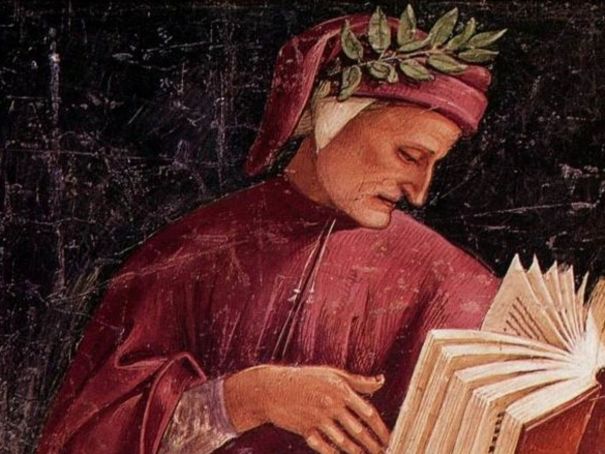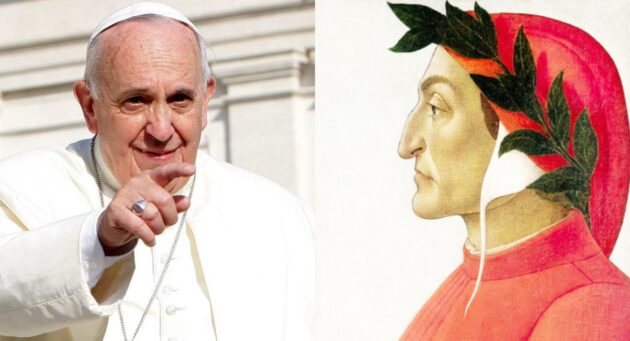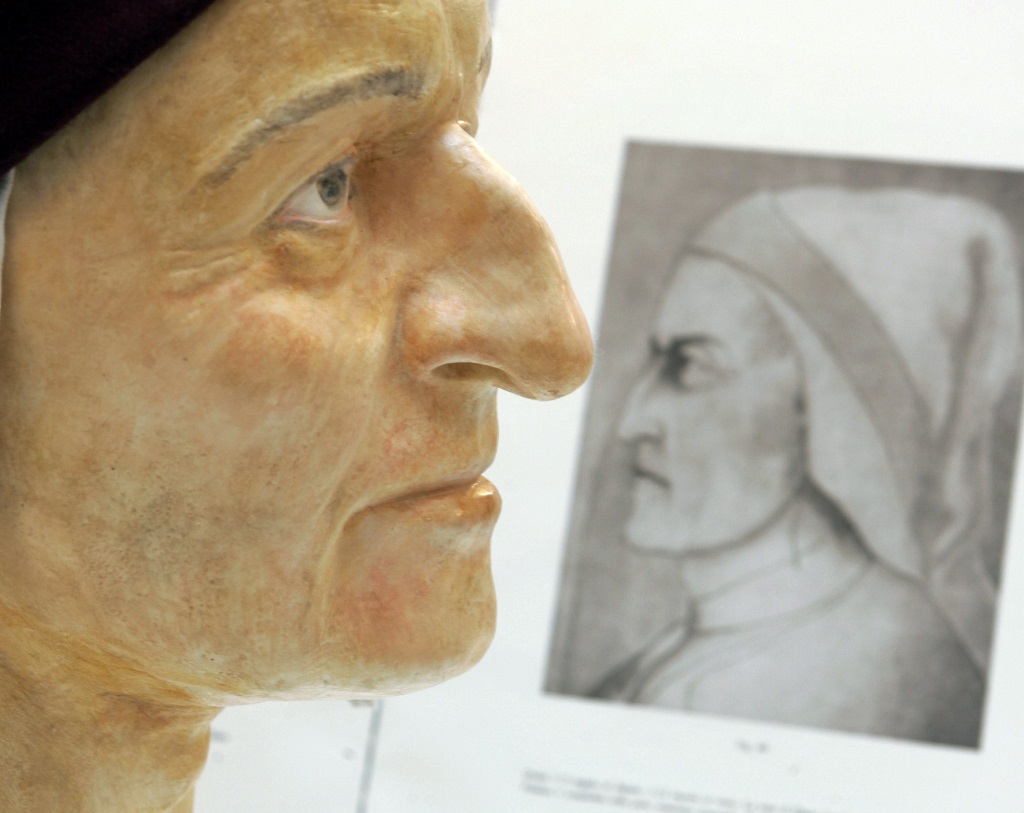Today Pope Francis released an apostolic letter, Candor Lucis Aeternae, celebrating the great poet Dante Aligheri and his work The Divine Comedy. This year, 2021 marks the 700th anniversary of Dante's death, and so be prepared for a number of events marking it. I haven't read the apostolic letter yet but I have seen several articles about it. Oddly, two articles come from the same writer (Inés San Martín) from the same magazine (Crux) released on the same day, today. That’s certainly unusual. One article focuses on the apostolic letter, “Pope Francis calls Dante a ‘prophet of hope.’”
Following in the
footsteps of his predecessors, Pope Francis on Thursday released a document
reflecting on the life and work of Italian poet Dante Alighieri, calling him a
prophet of hope in a historic moment where inhumanity and lack of prospect loom
large.
“At this particular
moment in history, overclouded by situations of profound inhumanity and a lack
of confidence and prospects for the future, the figure of Dante, prophet of
hope and witness to the human desire for happiness, can still provide us with
words and examples that encourage us on our journey,” Francis wrote in the
closing lines of Candor Lucis Aeternae (“Splendor of Light Eternal”).
Dante, Francis writes, has an important message to convey, one that is meant to touch the hearts and minds of all, and still in present time has the ability to inspire change and transformation. The message his tale tells should help appreciate “who we are and the meaning of our daily struggles to achieve happiness, fulfilment and our ultimate end, our true homeland, where we will be in full communion with God, infinite and eternal.”
The other article by Ms. San Martin, “700 years after his death, Dante still inspires popes,” focuses on Dante's relationships with various Popes. Here is an excerpt:
Though often labeled as a
“pope of firsts,” Francis’s Candor Lucis Aeternae is not the first reflection
by a pontiff on the poet: Benedict XV published the encyclical titled In
Praeclara Sumorum (“Among the many celebrated geniuses”) in 1921, which was
dedicated to Dante’s memory and written for the occasion of the sixth centenary
of his death. Pope St. Paul VI also wrote apostolic letter in 1965, Altissimi
Cantus, to mark the seventh centenary of his birth.
“Someone might perhaps
ask why the Catholic Church, by the will and work of its visible Head, takes it
to heart to celebrate the memory of the Florentine poet and to honor him,” Paul
VI wrote. “The answer is easy and immediate: Dante Alighieri is ours by a
special right: Ours, that is, of the Catholic religion, because everything
breathes love for Christ; ours, because he loved the Church very much, of which
he sang honors; ours, because he recognized and venerated the Vicar of Christ
on earth in the Roman Pontiff.”
In 2015, ahead of the
inauguration of the Extraordinary Jubilee Year of Mercy, Francis said that
Dante “is a prophet of hope, herald of the possibility of redemption,
liberation and the profound transformation of every man and woman, of all
humanity.”
Both of Francis’s most
recent predecessors also praised the poet.
At a reading of The
Divine Comedy in 1997, Pope St. John Paul II noted that “almost seven centuries
later, Dante’s art evokes lofty emotions and the greatest convictions, and
still proves capable of instilling courage and hope, guiding contemporary man’s
difficult existential quest for the Truth which knows no setting.”
Benedict XVI also voiced great admiration for the poet, and when he was still a priest and wrote his famous book Introduction to Christianity in 1968, he uses The Divine Comedy to explain the “scandal of Christianity.”
Now if you want the actual apostolic letter, you can read it here:
I haven't read it yet, but I hope to. I will certainly post on it when I do.
Those
who read my posts of The Divine Comedy
several years ago you know my love for Dante and his work. A few weeks ago I
compiled all the links to my blog posts on Dante into one post for easy
access. Now I am adding a link on my
header above to that post on my Dante links. I hope people find the link and ultimately my
commentary on Dante useful.
Photo Credit: Marco Bucco/Reuters via CNS, A bust of Italian poet Dante Alighieri is seen next to an etching of him at the University of Bologna in Ravenna, Italy.




No comments:
Post a Comment